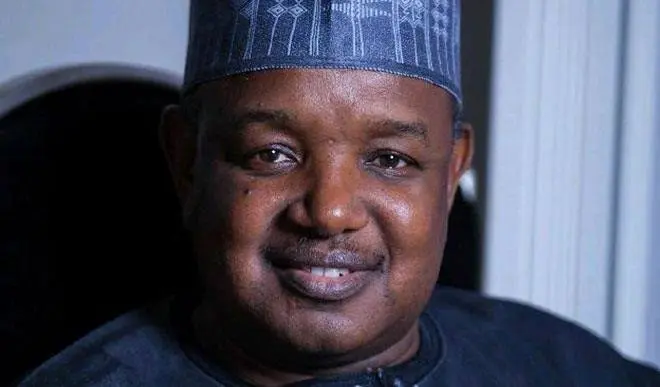The Federal Government has indicated its full commitment to realizing Agenda 2050, which includes ambitions to reach a GDP per capita of $33,000 and reduce the poverty rate to a mere 0.6%.
Minister Abubakar Atiku Bagudu, responsible for Budget and Economic Planning, announced this development during a media briefing about the upcoming 29th Nigerian Economic Summit (NES29).
He stated that the fundamental purpose of the agenda was to raise the per capita GDP of the country, thereby enabling the economy to achieve the highest per capita GDP among upper-middle-income nations.
He detailed that the effective implementation of the plan would be carried out by successive administrations, utilizing medium-term national development plans and annual budgets.
He stated that within Nigeria Agenda 2050, the objectives of Sustainable Economic Development encompass establishing a stable and predictable macroeconomic context, implementing policies designed to boost domestic savings and investment, and creating a business-friendly environment.
Additionally, others are attaining concentric economic diversification, pursuing sustainable growth, and fostering productivity and industrial development.
The minister pointed out that the summit has become the preeminent annual gathering for both public sector policymakers and leaders from the private sector in the country.
He also explained that the theme of the 29th Nigerian Economic Summit, “Pathways to Sustainable Economic Transformation and Inclusion,” was chosen to delve into the necessities of economic transformation while ensuring inclusivity.
Read also: We Will Lift 133m Nigerians Out Of Poverty, FG Vows
‘The discussions around the theme will be dimensioned across five sub-themes – Stimulating Economic Growth; Mobilising Finance for Sustainable Development, Harnessing Human Capital Development, Promoting National Cohesion and Inclusion and Reforming Public Institution,’ Bagudu said.
He added: ‘Its success will depend on the active and deliberate participation of all critical stakeholders, including, the federal government, sub-national governments, private sector operators, civil society organisations, media and development partners.’
The minister explained that the Renewed Hope Agenda, along with the eight priority areas of the current administration, is designed to accelerate the objectives of Agenda 2050 and the National Development Plan 2021-2025, with a strong emphasis on achieving double-digit growth and inclusive development.
‘The ministry is in the process of conducting the mid-term review of the NDP 2021-2025 to fine-tune the plan and ensure that the Renewed Hope Agenda of the current administration is incorporated into the NDP 2021-2025.’
‘The ministry will welcome innovative ideas from the stakeholders at the Summit to ensure its effective integration into the NDP 2021-2025,’ he said.
Bagudu asserted that the routes to sustainable economic transformation and inclusiveness involve the implementation of innovative policies, the development of robust and functional institutions, strategic investments in infrastructure, the enhancement of human capital through upskilling, the fostering of entrepreneurship and innovation, and the harnessing of digital technology.
‘Through targeted reforms, increased transparency and good governance, Nigeria can unlock its immense economic potential, attract foreign investments, equip our youth with the skills and resources they need to leverage opportunities and improve the quality of life for its citizens,’ the minister said.
NESG Chairman Olaniyi Yusuf expressed that Nigeria is presently grappling with pressing challenges that require equitable and resilient economic growth.
He stated that Nigeria is currently positioned uniquely to chart a path towards shared prosperity and to overcome persistent obstacles that have hindered its socio-economic development.
